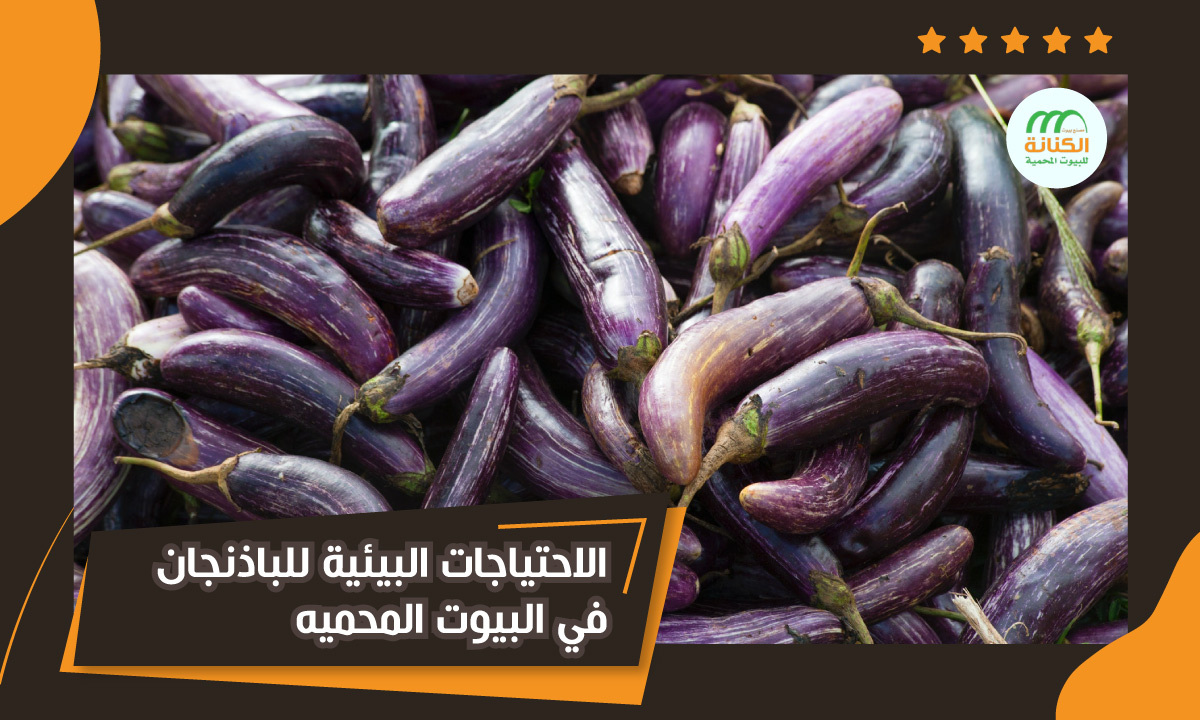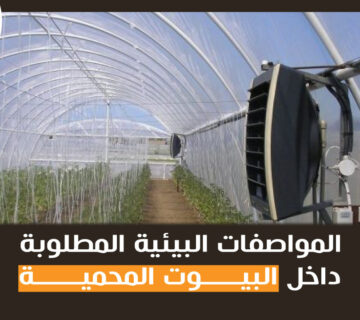Greenhouses.. An important aspect when growing any crop, whether inside or outside the greenhouse, is to know all the environmental and climatic conditions that this plant needs for proper growth, and these two needs usually include the elements of heat, humidity, ventilation, light, and others.. Here are the most important requirements for growing eggplant in a greenhouse.
قائمة المحتوى
Greenhouse temperature
- Eggplant is one of the most sensitive crops to cold, and it is one of the plants that can withstand high temperatures.
- Warm conditions are a prerequisite for the proper growth of eggplant; Exposure to cold weather or low frost, even for short periods of time, causes many damages.
- The optimum temperatures for its growth range between 32:42 degrees Celsius, and eggplant germination in these climatic conditions takes about 10 days. .
- While its seeds cannot grow indoors under 15°C or above 35°C.
The right amount of light
- As for the amounts of light required as a prerequisite for eggplant growth in greenhouses, they are neutral elements.
- In the sense that the effect of the photoperiod on the flowering of the eggplant crop is very limited.
- Flowering usually begins after a 6:14 leaf formation, which in turn depends on how early or late the cultivar is planted.
humidity levels
- During some experiments with eggplant cultivation, some changes were observed in the yield due to the relative humidity.
- However, the persistence of high humidity day and night; This led to a decrease in the number of fruits and, consequently, a decrease in the yield.
- Also, the low humidity is persistent during the day and at night; It led to dryness in the fruit cup.
- Although there were no negative effects of high relative humidity on the quality of the fruits, it did cause an increase in the infection of the crop with Botrytis fungus.
Irrigation and fertilization of eggplant in greenhouses
As for the irrigation and fertilization systems used in growing eggplant inside greenhouses, they are as follows:
- Eggplants have been shown to respond to good watering, but care must be taken not to overdo the watering amounts used; This is so that the roots do not rot.
- With regard to fertilizing; Eggplant fruits need 60:45% of the nitrogen absorbed by the plant, 60:50% of phosphorous, and 70:55% of potassium. Harvest season.
- Eggplant responds well to fertilization with drip irrigation.
Eggplant grows better with nitrate nitrogen than with ammonium nitrogen, the latter of which leads to decreased plant growth rates. The eggplant also needs inside greenhouses for many agricultural activities and operations to ensure that it is harvested in the required quantity and quality, including taking into account heating and ventilation factors, pruning, and protecting it from fungal diseases and agricultural diseases that may be infected.

 then 'Add to home screen'
then 'Add to home screen' then 'Add to home screen'
then 'Add to home screen'







لا يوجد تعليقات